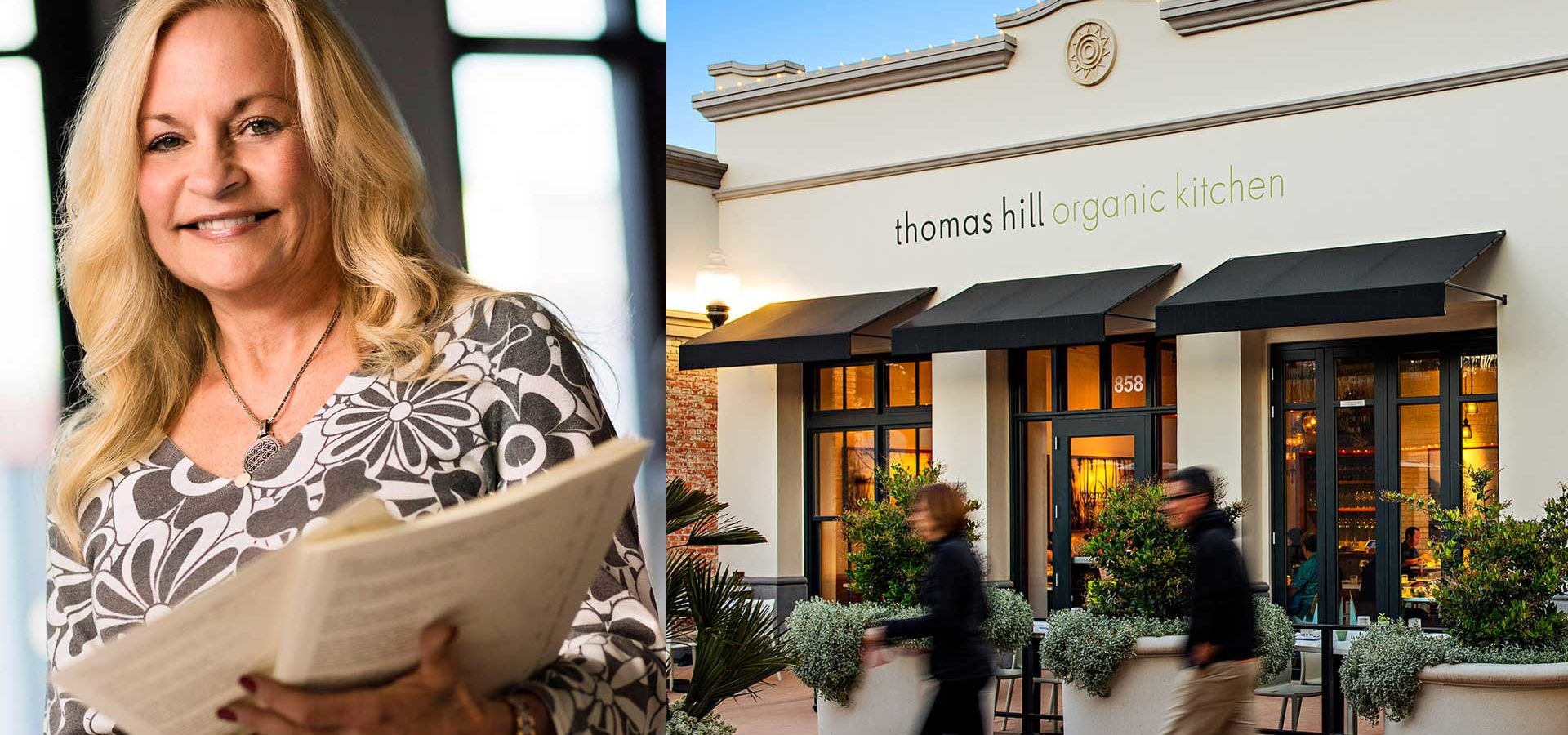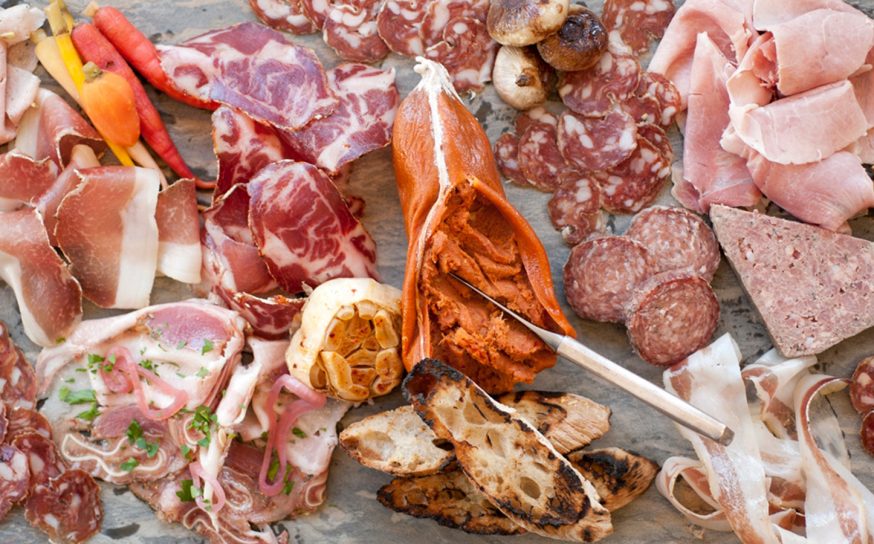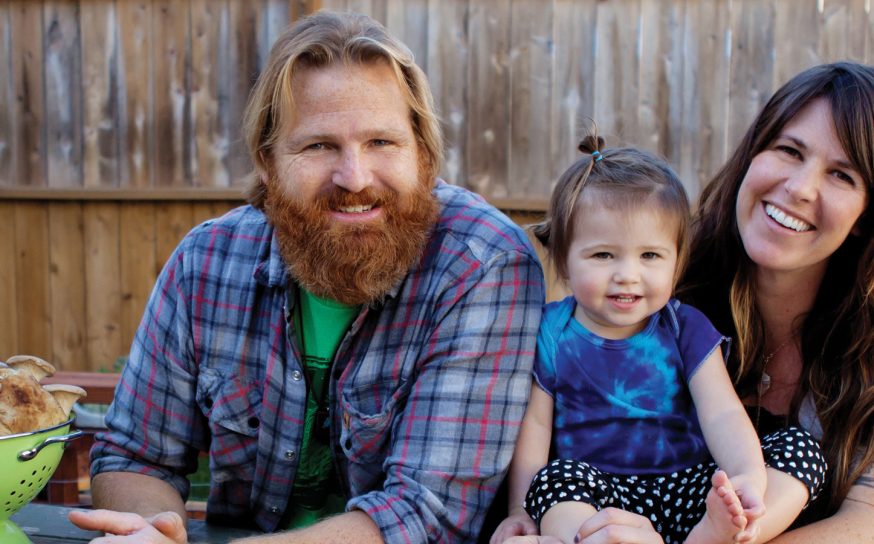Full Plate: An Early Farm-to-Table Pioneer Branches Out
How did Debbie Hill, a California girl with no prior culinary background, start one of first and most successful farm-to-table restaurants on the Central Coast? Passion, persistence and produce … lots of it.
-
CategoryFarm + Table
-
Written byDarren Elms
When I first met Debbie Hill, I was on a weekday visit to the restaurant she still runs in the heart of downtown Paso Robles, Thomas Hill Organics. We had just come from a visit to the farm she then shared with her former husband, and she immediately dazzled my group with dishes made from fresh ingredients harvested earlier that day. Business was booming that lunch hour, at least judging from the packed house and satisfied expressions on her guests.
That was several years ago, when the “farm-to-table” concept was far more faint than familiar. It’s not that other restaurants in California weren’t using local ingredients in their recipes back then, it just wasn’t as widely promoted by chefs or appreciated by a hungry public. Much has changed between then and the movement we know today. What’s even more surprising is Debbie was not a chef, nor did she have a culinary background. She just loved good food and happened to have an entrepreneurial spirit and a mastery of marketing. Way before charcuterie boards and harvest salads became a staple on dining menus, she envisioned a Central California-centric venue that celebrated delicious, small farm flavors. Now Thomas Hill Organics is synonymous with Paso Robles and draws plenty of curious outsiders for a seat at her coveted table. Most recently, she expanded her kitchen to nearby San Luis Obispo with a second popular venue. We caught up with the restaurateur just as the bust summer season started heating up.
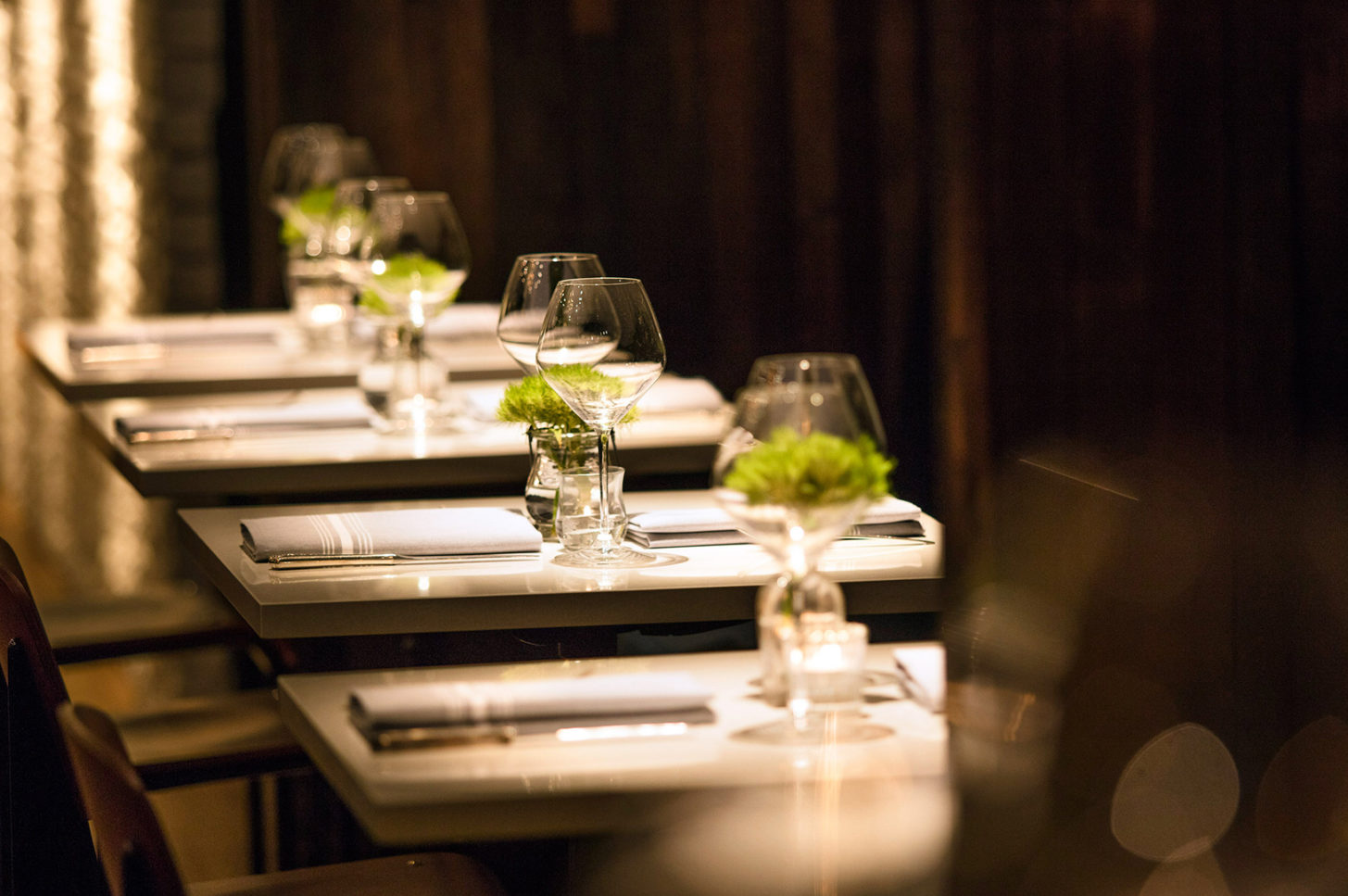
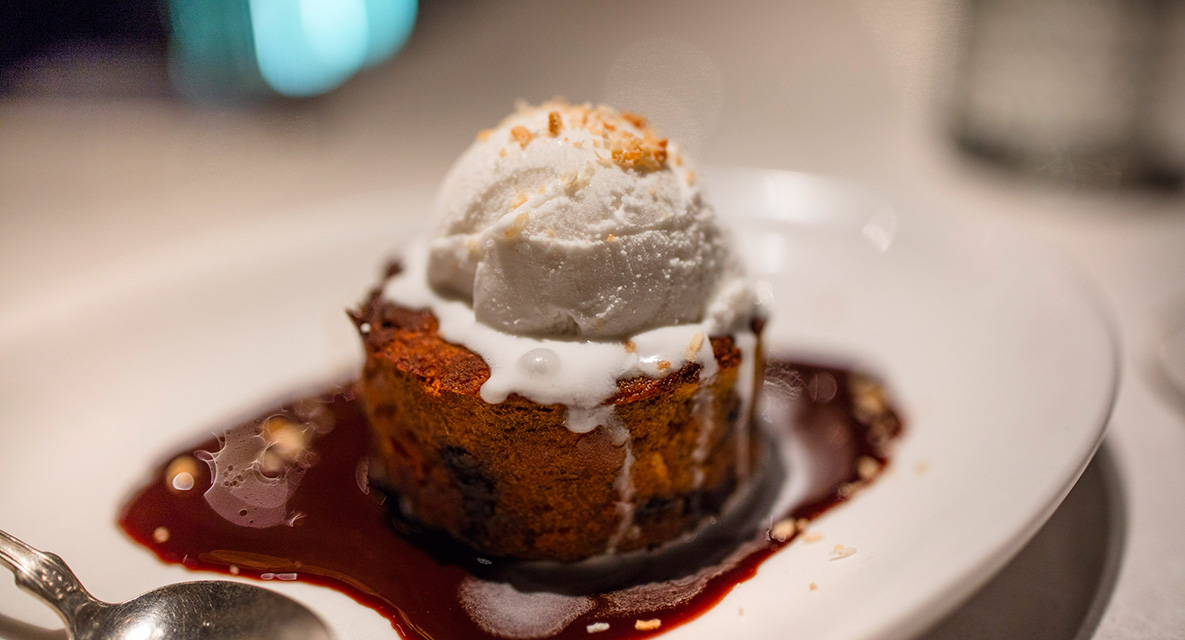
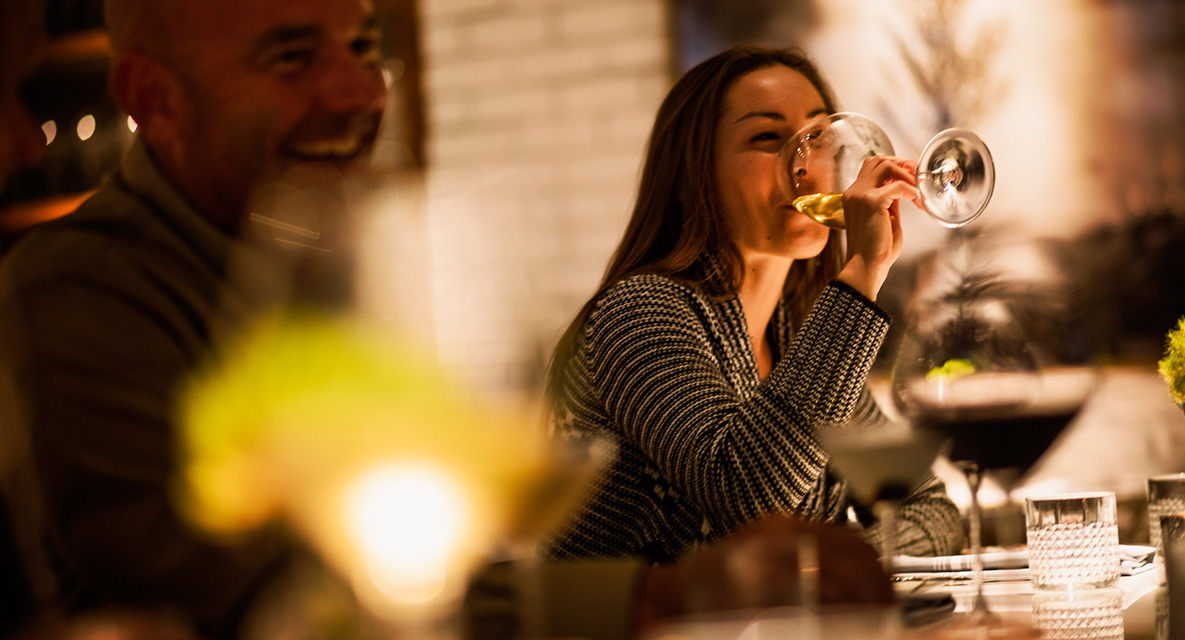
Debbie, are you a native of Paso Robles?
Debbie Hill: No, I am not. I grew up in Los Angeles and then moved to New York when I was 21. I lived back east for 17 years before moving back to the West Coast.
What eventually drew you to Central California?
DH: I loved good wine. I spent a couple of days in Paso and fell in love with the town and the beautiful surroundings. I wanted to retire there.
What was the genesis for Thomas Hill Organics?
DH: When we moved here from LA, we started a 10-acre organic farm on our property. We planted over 900 fruit and nut trees. Once these started to produce we started a CSA program. I worked for Adidas at this time and my two major accounts closed so Adidas wanted me to move to Portland. I did not want to move, so I decided to open an organic restaurant. How hard could it be? Argh…
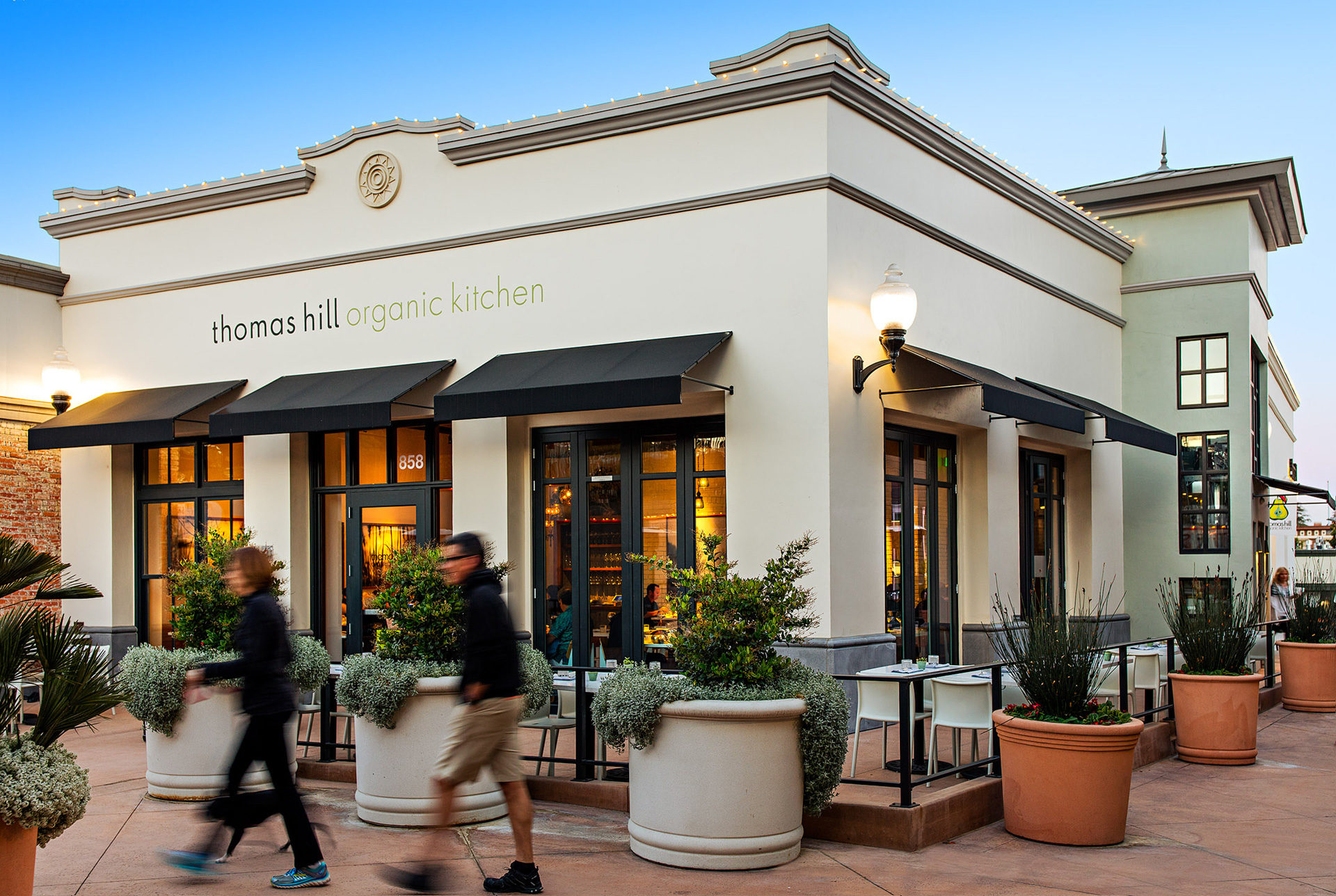
So you didn’t have a culinary background prior to Thomas Hill Organics?
DH: No, but I love to eat! I am not a chef. My previous positions with companies like Adidas allowed me to travel all over the world. I developed quite the palate for good food and wine.
You were present early in the “farm-to-table” movement. How would you say it evolved since then?
DH: Yes, we were the first true farm-to-table restaurant on the Central Coast. It is now a way of life. People now understand the benefits of eating locally.
What was it like when farm-to-table first emerged?
DH: Difficult. People did not understand our concept. They thought we were a vegetarian restaurant.
Were customers receptive to the concept or did it take a while to warm up?
DH: It took over two years for people to get it. Once they realized we loved meat—just not with hormones and antibiotics in them—we took off. I also used my marketing background to entice magazines to visit the farm and restaurant.
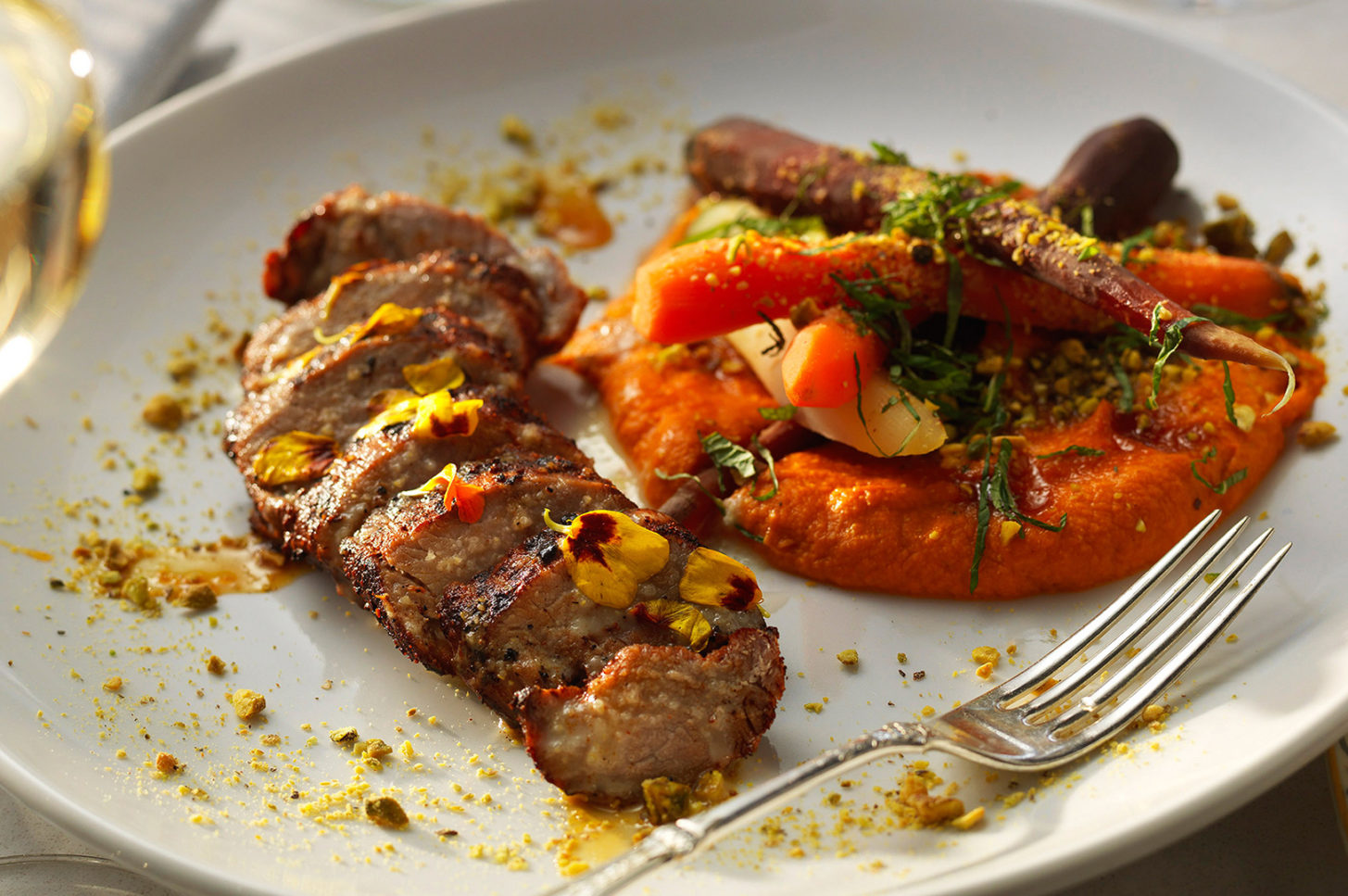
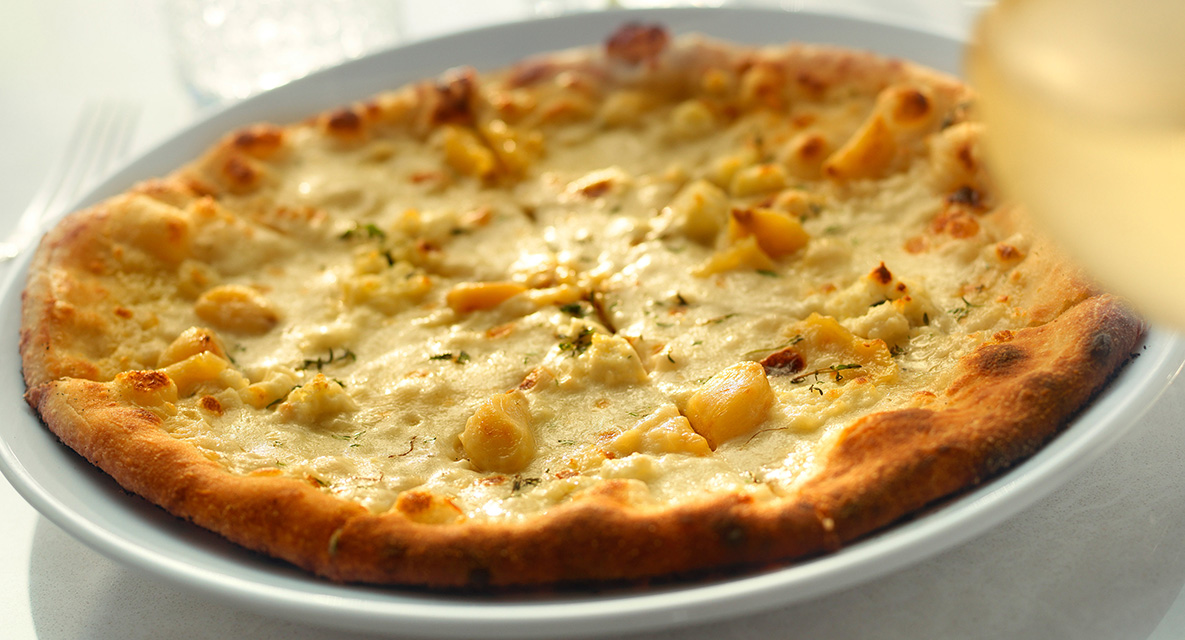
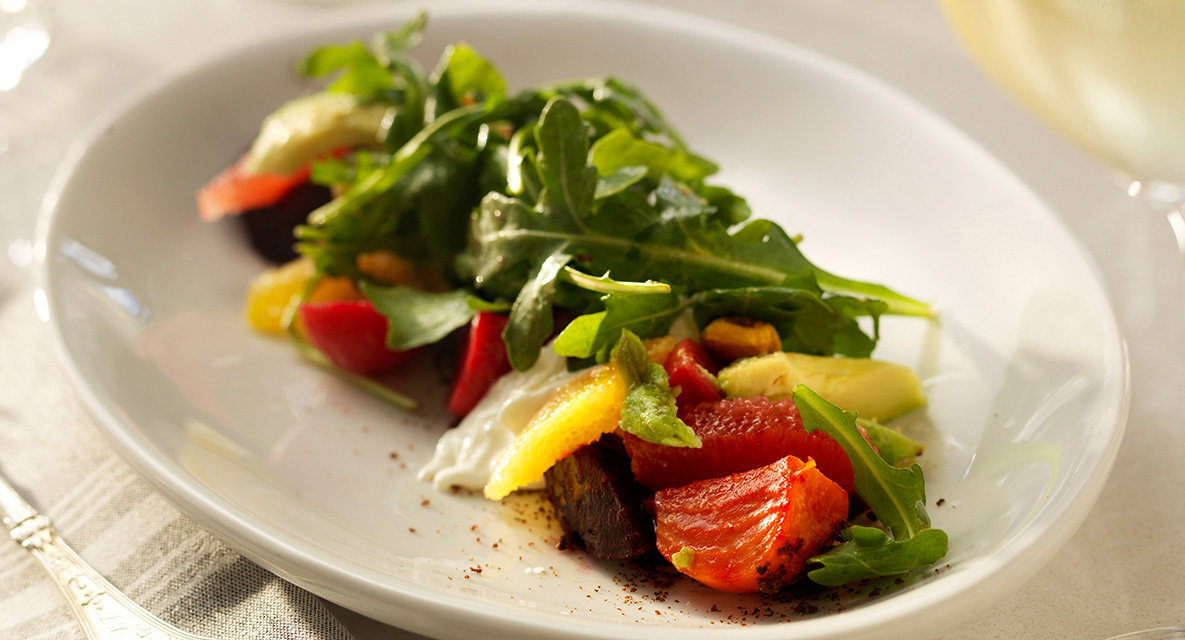
Where do you source most of your fresh ingredients?
DH: Loo Loo Farms, Windrose Farms, Peppercreek Farms, Magnolia Farms, Bautista, Mt. Olive, the list goes on …
Tell me a little about those relationships.
DH: Once I lost the farm, these were the farmers I worked with to supply the restaurant. We see them weekly either at the farmers market or when they deliver directly to us.
Do you support local wineries?
DH: We have a very locally driven wine list at the moment. We have great relationships with the local wineries. We do rotate our wine list quarterly to ensure we get as many on the list during the year as possible
Do you create dishes with a pairing in mind?
DH: No, but we always have wines on our list by the glass that pair with our food selection.
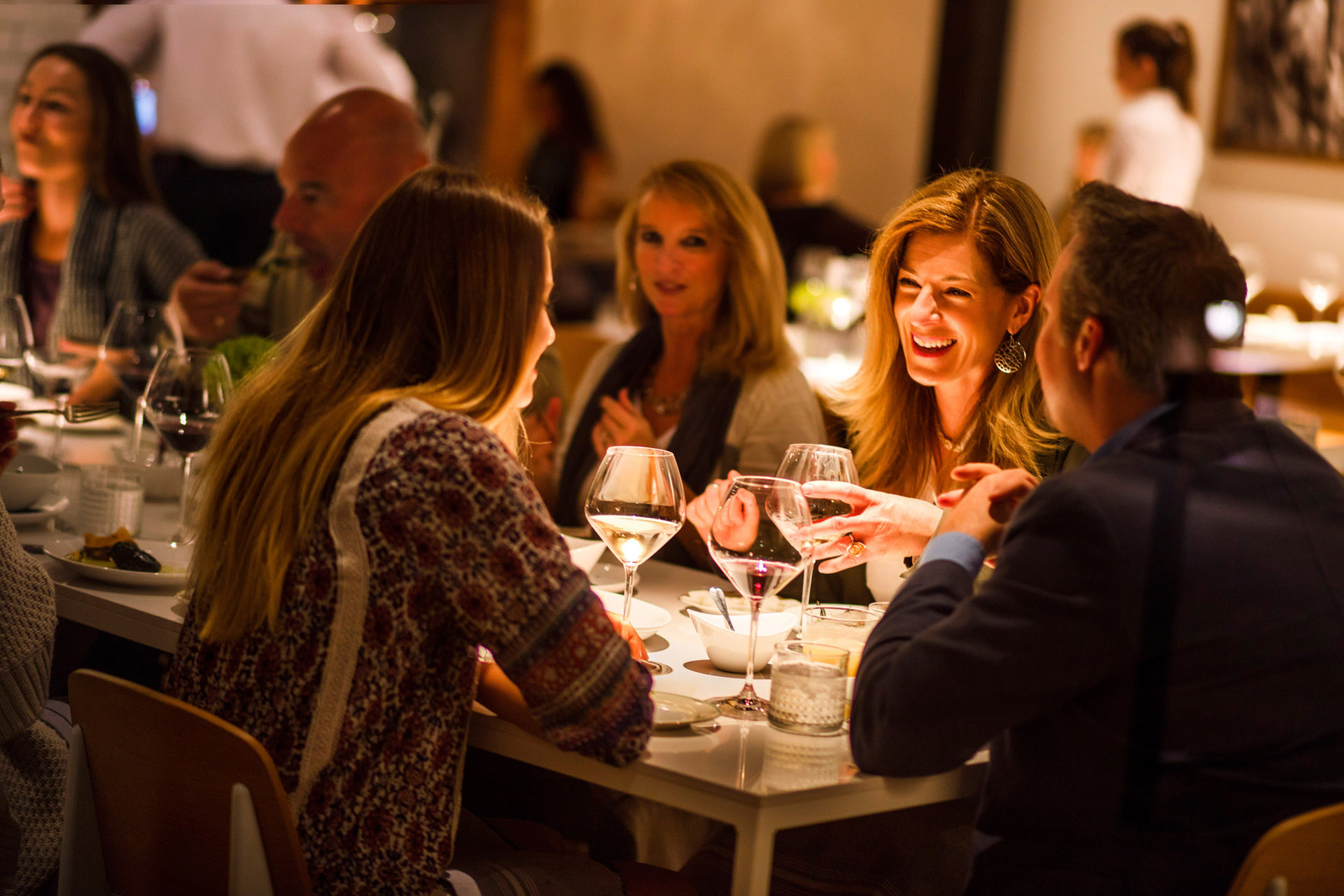
What do you love most about summer harvesting?
DH: OMG … heirloom tomatoes are my favorite. And of course all of the wonderful stone fruits, like peaches, plums, apricots, pluots, etc. I love the summer. It’s the best assortment of produce.
What are your favorites to bring to the restaurant and how do you use them?
DH: The Heirloom tomatoes are definitely my favorite. We make a beautiful burrata dish with them.
I’m sure Paso Robles has changed quite a bit since you first arrived and opened the first restaurant.
DH: It has grown significantly over the last 14 years that I have been here. When I first got here there were about 80 wineries. Now there are over 250! There were only a few great restaurants and now there are numerous ones.

Congrats on the new restaurant in San Luis Obispo. How did that come about?
DH: I started the conversation about seven years ago with my landlord. The economy went down so it got put on hold. About three years ago they approached me again. I loved the idea of having a location in SLO because it is a different market than Paso. I wanted the look to be upscale, but casual, and I believe I achieved it! The food is still locally sourced and amazing.
Do you partner up for any events or causes outside the restaurant?
DH: We just did Walk a Mile In Her Shoes put on by Rise. We donated 10% of our proceeds for the day totaling $1,400 dollars. We also supported the nearby Madonna Inn fashion show, Roll Out the Barrels and others. We also cater a lot of winery dinners and weddings.
What’s on the horizon for you and Thomas Hill Organics?
DH: A VACATION.
You can see more of Thomas Hill Organics at www.thomashillorganics.com.
From Tech to Speck: Boccalone Offers Northern Californians Artisan Salumi
How a former Silicon Valley professional helped revive San Francisco’s salami-making tradition.
Love for the Desert Date Shake Is No Longer Just a California Secret
When a prominent epicurean magazine picks up a story about Coachella Valley’s famous date shakes, you know you’ve made it.
Shiitake Happens: Mushroom Farming in Southern California
Hippies at heart and endlessly creative, the Parker family finds passion in mushroom farming.
Get the Latest Stories




